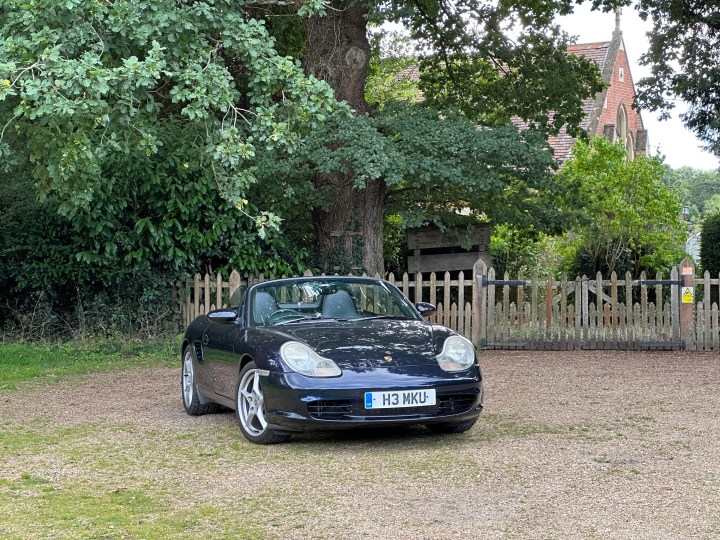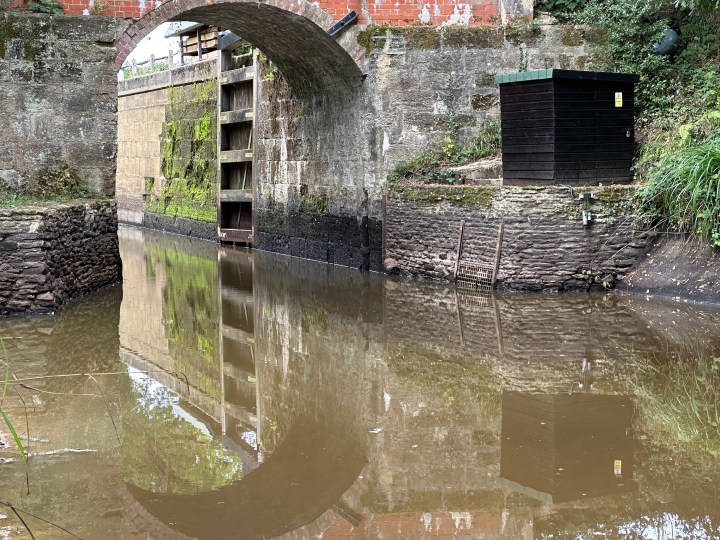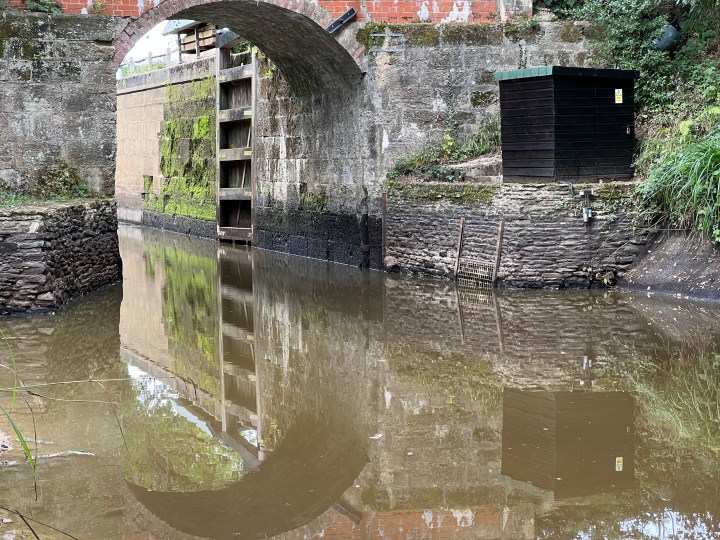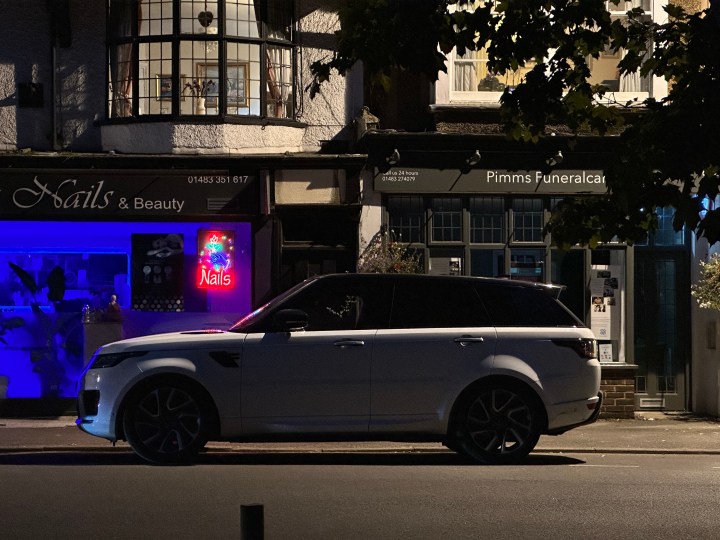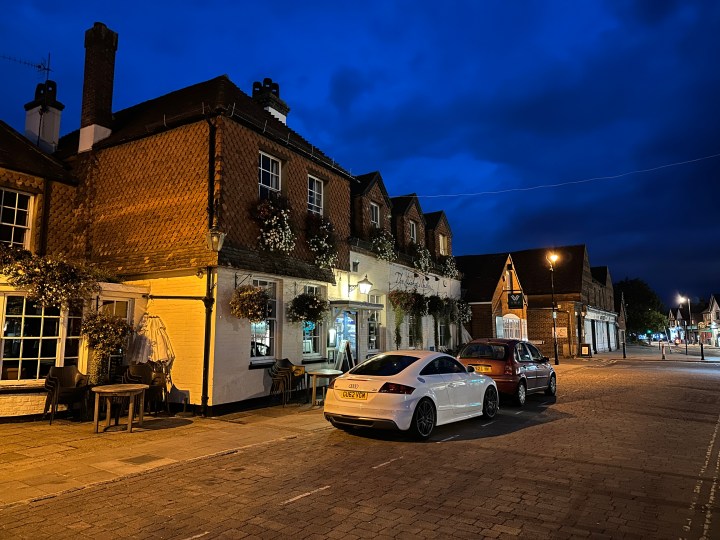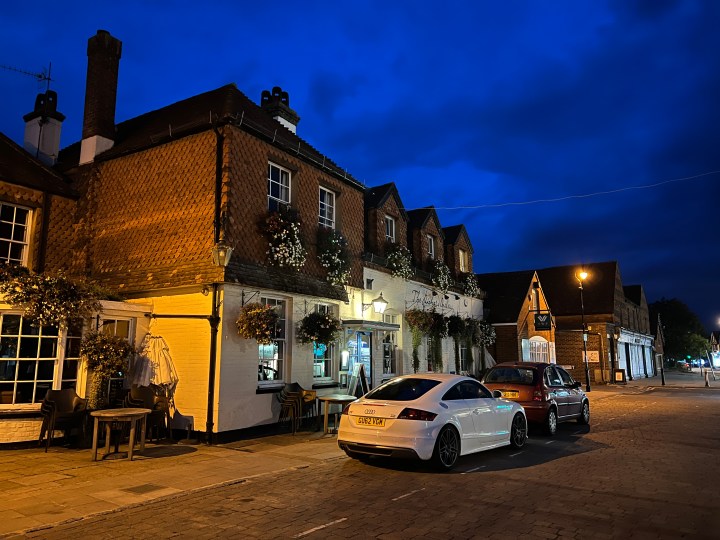If you’re looking longingly at the new iPhone 14 Pro and wondering just how good the camera is, and whether it’s better than the Apple phone that’s already in your pocket, we’ve got the answer for you. Over the first few days with the 14 Pro, I’ve taken several hundred photos with it and the iPhone 13 Pro, ready to put the two against each other in a battle that’s sure to get heated.
iPhone 14 Pro vs. iPhone 13 Pro camera specifications
You can see a complete breakdown of what’s new with the iPhone 14 Pro compared to the iPhone 13 Pro, but we’re only concerned with the cameras for this test. Apple has made some changes with the new generation. The iPhone 14 Pro has a new 48-megapixel main camera with an f/1.78 aperture, second-generation optical image stabilization, and its Deep Fusion, Smart HDR 4, and new Photonic Engine features. It’s joined by a 12MP ultra-wide camera and a 12MP telephoto camera with a 3x optical zoom.
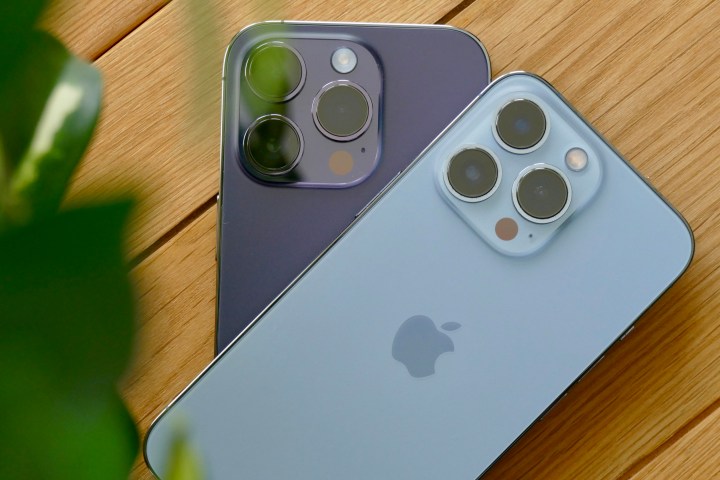
The iPhone 13 Pro has three 12MP cameras on the back. The main camera has Apple’s previous generation optical image stabilization and an f/1.5 aperture, while the telephoto also has a 3x optical zoom. On the software side, the phone also has Deep Fusion and Smart HDR 4 technology but doesn’t have the new Photonic Engine. The two phones use different processors, with the A15 Bionic powering the iPhone 13 Pro, and the A16 Bionic in the iPhone 14 Pro. On the front is a 12MP selfie camera, but the 14 Pro gets the Photonic Engine and an f/1.9 aperture.
Although there are other differences, these are the major ones, and we’re not going into video performance for this test. All the photos were taken using automatic settings, and for the night shots, I let the phone set the exposure time. In some of the portrait mode shots, I did tap to confirm the subject, but otherwise, everything is left to the phone to sort out. Images have been examined on a color-calibrated monitor but resized here for friendlier online viewing.
iPhone 14 Pro vs. iPhone 13 Pro: main camera
It’s time for a game of spot the difference. At first glance, the two main cameras take very similar photos, and it may seem like Apple hasn’t made any changes at all. However, there are differences when you look much more closely, and they add up to a better photograph. What’s not clear is whether these alterations make upgrading worthwhile, but we’re getting ahead of ourselves.
- 1. iPhone 14 Pro
- 2. iPhone 13 Pro
The first photo is of a canal, taken around the middle of the day with overcast skies. There’s a sharpness to the iPhone 14 Pro’s photo that’s missing from the iPhone 13 Pro’s. It’s not much, but it’s most obvious looking at the pathway. The focus points are different, with the iPhone 14 Pro appearing to take in the entire scene and bringing more of it into focus. There’s also better contrast and white balance, noticeable when you look at the color of the clouds and the water.
- 1. iPhone 14 Pro
- 2. iPhone 13 Pro
Our second photo of lunch and a cup of coffee also shows these same qualities, but again, you won’t spot them with just a casual glance. Spend a moment and you’ll notice the plate is whiter in the iPhone 14 Pro’s photo, and the focus is generally sharper. The top of the sausage roll is in focus, but the iPhone 13 Pro doesn’t quite get it right. Outside of this, colors are practically the same: bright and natural.
- 2. iPhone 13 Pro
The third photo shows where some will prefer the iPhone 13 Pro’s photos, as it tends to up the saturation levels just a little more than the iPhone 14 Pro. You can see it in the blue sky in this photo of a church, but once again, the 14 Pro does deliver a sharper photo. There are masses of detail in the texture of the stone in both images, but the generally larger focal area of the iPhone 14 Pro makes it pop, despite not having quite such a blue sky.
It takes an analytical eye to spot the differences between the two main cameras, but once you know where the iPhone 14 Pro’s strengths lie, they’re quite easy to point out. Having the two side-by-side, it’s the iPhone 14 Pro that takes the superior photo, but I’m not sure how many people with an iPhone 13 Pro will consider the performance uptick enough to upgrade. That said, don’t let anyone tell you the two cameras take exactly the same photos, because they definitely don’t.
Winner: iPhone 14 Pro
iPhone 14 Pro vs. iPhone 13 Pro: wide-angle camera
If changes were hard to spot with the main camera, don’t worry, it’s easier to see where the iPhone 14 Pro differs when we get to the wide-angle camera. The photo of the car is a great starting point. The contrast levels and color management are dramatically different, with the 13 Pro prioritizing the blue of the car’s paint in a different (and actually less realistic) way than the 14 Pro. The windscreen is more clear, the grass more vibrant, and the sky more natural too.
- 1. iPhone 14 Pro
- 2. iPhone 13 Pro
However, while the changes in that photo are largely positive, it doesn’t always seem to work that way, and the iPhone 14 Pro’s wide-angle camera definitely still needs tuning. This wide-angle photo of a church shows it best. The iPhone 13 Pro’s color balance is much more natural, and in its efforts to show more detail on the church itself, the iPhone 14 Pro’s exposure levels blur detail elsewhere. The grey clouds are preferable to the iPhone 13 Pro’s blue-tinted ones, though.
- 1. iPhone 14 Pro
- 2. iPhone 13 Pro
In the final photo, it’s the same situation, where the iPhone 13 Pro’s exposure and contrast levels mean the sign is clearer and more readable, and the photo is generally a little brighter. The iPhone 14 Pro’s shot is moodier than it was in real life and isn’t as picturesque. However, the grey clouds are more realistic, and I don’t think there’s as much edge distortion either.
- 1. iPhone 14 Pro
- 2. iPhone 13 Pro
There are improvements here, but they aren’t across the board, and the iPhone 13 Pro’s wide-angle camera can still teach the 14 Pro a few things. For this reason, a winner is impossible to pick, and this ends up as a tie.
Winner: Draw
iPhone 14 Pro vs. iPhone 13 Pro: 3x zoom
Here’s where the iPhone 14 Pro really asserts its authority over the iPhone 13 Pro. Apple has really moved the 3x optical zoom mode on, and it takes far superior photos. We’ll start with a car again, as everything that makes the 14 Pro’s optical zoom great is on show. The color of the tree and the leaves, the detail in the front wheel of the car, the color of the grass in the bottom left of the shot, and the overall warm tone make it a huge improvement over the slightly drab, off-balance shot from the iPhone 13 Pro.
- 2. iPhone 13 Pro
In the second photo, you need to look a bit harder. The improved contrast and color from the iPhone 14 Pro makes the scene more natural, with greater emphasis on the reflection in the water, and on the moss-covered walls. You could probably edit the iPhone 13 Pro’s photo to make it better, but there’s almost no need with the iPhone 14 Pro’s photo.
- 2. iPhone 13 Pro
It’s not always as noticeable, and in some shots, you’d need to see them alongside each other to pinpoint the changes. However, once you’ve seen them like this, is impossible to ignore how much better the iPhone 14 Pro’s 3x optical zoom photos are compared to the iPhone 13 Pro.
Winner: iPhone 14 Pro
iPhone 14 Pro vs. iPhone 13 Pro: Night mode
Apple claims its new Photonic Engine feature means photos taken in low light, especially using the 3x optical zoom, will look better than ever. The first photo shows where this is absolutely true, but also how the photo may split opinions.
- 1. iPhone 14 Pro
- 2. iPhone 13 Pro
Just look at how sharp the text is in the iPhone 14 Pro’s 3x night shot, the lack of noise on the tarmac, and the clarity of the background in general. However, the vehicle is quite noisy and far less white in color than in the iPhone 13 Pro’s photo.
- 1. iPhone 14 Pro
- 2. iPhone 13 Pro
Switch to the main camera and while the two photos have differences, it’s not so instantly obvious. For this photo, concentrate on the paving. The iPhone 14 Pro shows a lot more texture and detail and relies less on smoothing the image out to avoid noise than the iPhone 13 Pro. It’s brighter as a result, and there are subtle improvements in sharpness and white balance.
- 1. iPhone 14 Pro
- 2. iPhone 13 Pro
Finally, use Night mode with the wide-angle camera, and neither phone takes great photos, with plenty of noise and a lack of detail. While the iPhone 13 Pro’s white balance looks a little more realistic, it lacks color and detail in the corners of the image and is generally cooler. I wouldn’t say either photo is good, however, this doesn’t stop the iPhone 14 Pro from taking the win here, as the 3x improvements make it more versatile in low light.
Winner: iPhone 14 Pro
iPhone 14 Pro vs. iPhone 13 Pro: Portrait mode
Taking a variety of different shots with the portrait mode on both phones shows no real change in edge recognition, with both cameras capturing lines and detail effectively. The differences between the photos are similar to what we’ve seen elsewhere in the test, with sometimes minutely differing contrast and color balance levels.
However, as edge recognition hasn’t changed much between them, it’s harder to directly choose a winner without getting really close up. As we’ve seen already, the iPhone 14 Pro is better at focusing and overall sharpness. It’s much less obvious in these photos, but combined with the more visually pleasing contrast and tone, the iPhone 14 Pro will be the winner. It’s really close, though.
Winner: iPhone 14 Pro
iPhone 14 Pro vs. iPhone 13 Pro: Selfie camera
The winner of this category is entirely based on skin tone. Edge recognition in Portrait mode looks identical, and color balance throughout the rest of the photo is basically the same. There is a tiny change in skin tone, though, with the iPhone 13 Pro usually giving me more color. Now, I’m not saying this is more accurate (the photo of the pastier English person is likely more so), but I do prefer to look more alive than ashen.
- 1. iPhone 14 Pro
- 2. iPhone 13 Pro
It does appear the iPhone 14 Pro’s photo contains more detail, but I don’t think this is the case. When you zoom in (please leave this to me, I wouldn’t wish it on anyone), it’s actually exposure levels that create the illusion of a greater level of detail. The real test here is how both cameras will do with different skin tones, and for this reason, along with the minimal changes elsewhere, it’s another draw.
Winner: Draw
iPhone 14 Pro or iPhone 13 Pro?
It’s a big win for the iPhone 14 Pro, which secured five category wins, while the iPhone 13 Pro didn’t take any. The pair did draw in two categories, but even if the 13 Pro had won those it still wouldn’t have been enough to beat the iPhone 14 Pro. But is it really a big win?
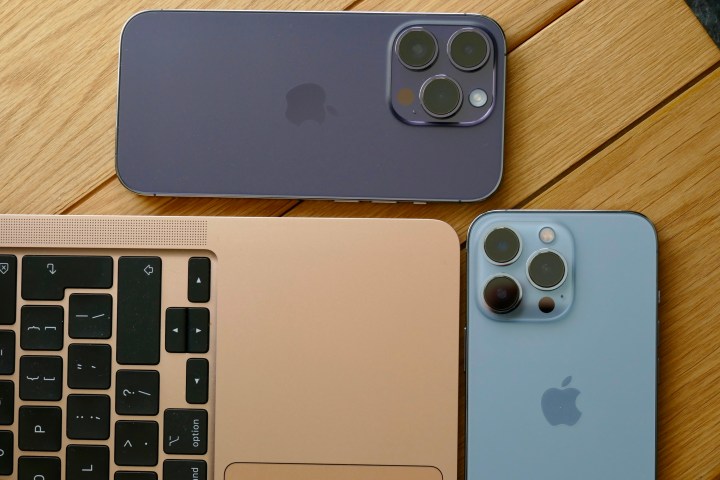
You can’t take it away from the iPhone 14 Pro. Apple has made legitimate improvements throughout the camera system — but if you’re expecting it to be hugely better than before, then it’s not the case. It’s not really that much of a surprise either, as the iPhone 13 Pro takes great photos. What’s more interesting is when I ran a similar test with the iPhone 12 Pro against the iPhone 13 Pro in 2021, the final result was a lot closer, and I often preferred the iPhone 12 Pro’s photos at that time.
The fact the iPhone 13 Pro hasn’t taken a win here shows that although the updates are harder to spot at a glance, they’re substantial enough to make a difference when you take a moment to examine the photos. Only you can decide if that’s enough to trade in your iPhone 12 Pro or 13 Pro, but if you’ve got an iPhone 11 Pro or earlier, it’s a far easier recommendation.












